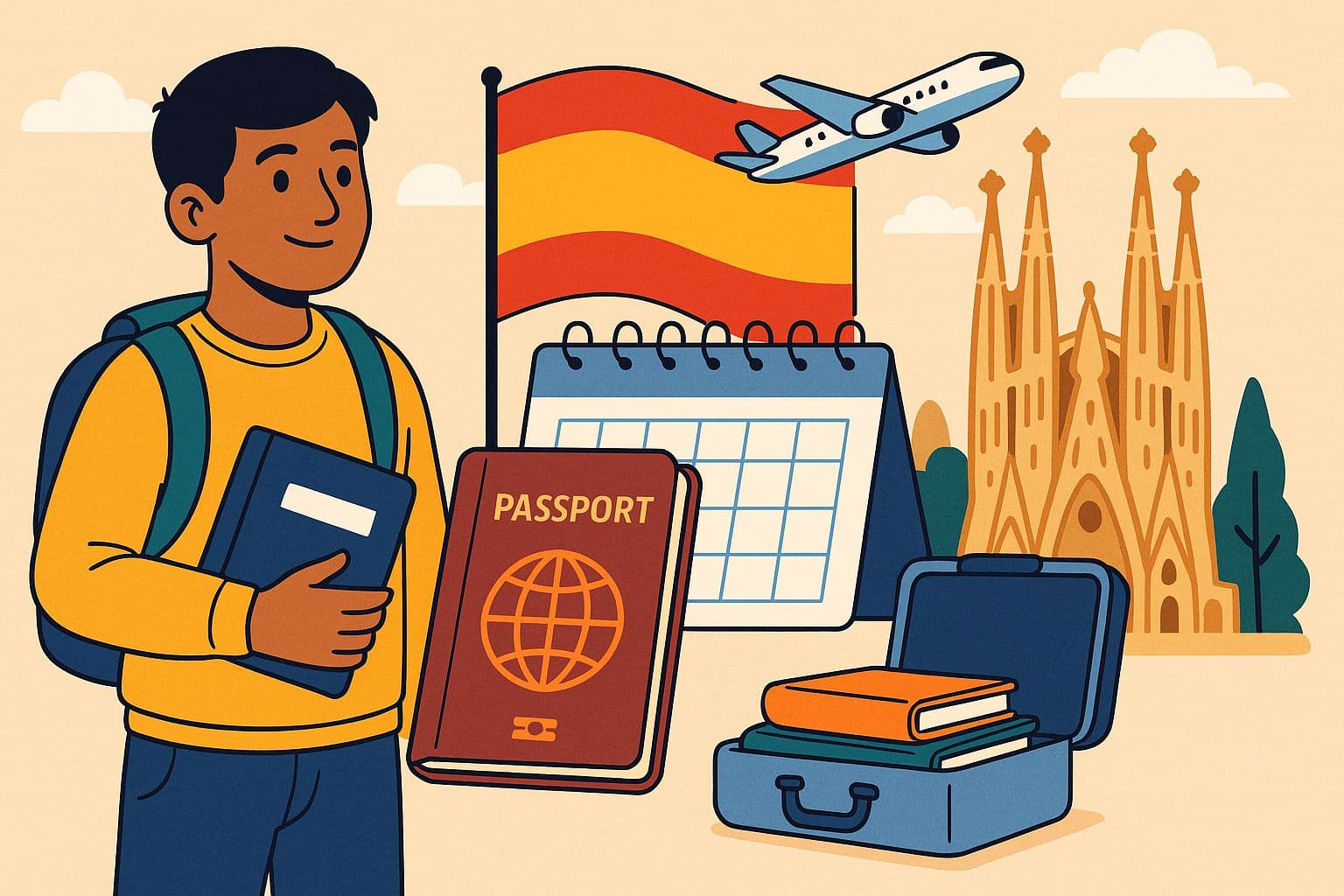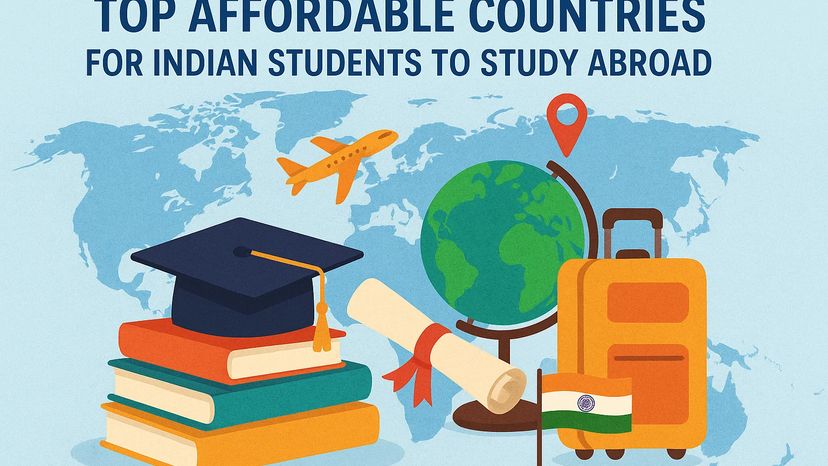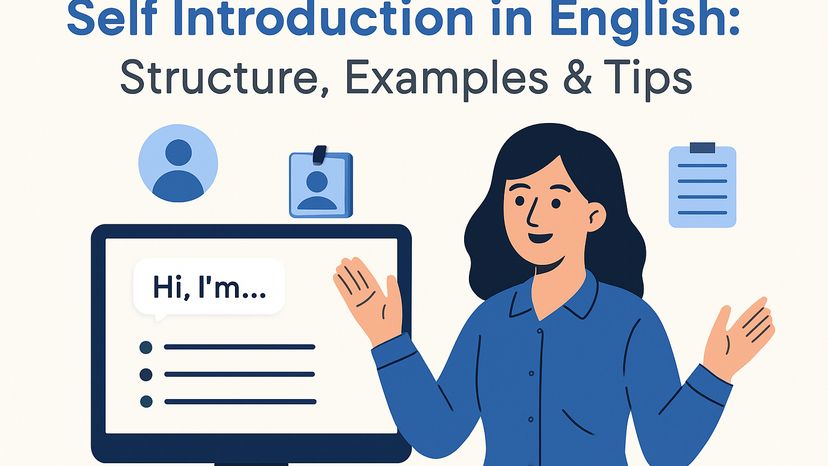How to Settle in Spain from India: A Comprehensive Study Abroad Guide
Are you ready to exchange the bustling streets of India for the historic streets of Spain? Each year, hundreds of Indian students and professionals aspire to do just that by inspiring sites like the Sagrada Família, and the culture that Spain has to offer. Fortunately, moving to Spain from India has actually never been easier given the pathways through education and work/residency.
This comprehensive blog post will cover everything from finding Spanish universities, applying for a Spain student visa, finding jobs vacancies in Spain, the Indian population in Spain, and obtaining Spain PR and Spain citizenship history for Indian nationals.We’ll compare Spain vs India, highlight all the essentials for study abroad in Spain, and help you build the confidence to start your journey. Let’s unlock your European dream together!
Why Spain? Key Advantages for Indian Students & Professionals
Spain is more than just a travel experience; it is now home to a personal experience that has seen students and professionals from India receive a quality education, exciting jobs and a community to call home.
Currently, here are the key reasons why Spain continues to be the key destination:
- Recognised Spanish Universities: Spain has universities that have a global reputation, which programs are available in either English or Spanish in business, engineering, art, hospitality, etc. These programs pick up students from each continent to gain a stimulating and diverse education.
- Flow of Global Exposure: Going to college in Spain is more than just classroom experiences, it includes best-in-class internships, exchange programs, research opportunities that global employers really value! In addition to the teaching concepts and methodologies that are practical and use international experiences which allow student involvement in skill development and learning with the opportunity for interaction relating to technical skills and soft skills.
- A Great Lifestyle: The lifestyle in Spain, especially compared to India, is completely different. The pace of life is different and family and community life is culturally important in Spain. Spain can offer some significant change and escape from the hectic nature of life in the metro cities of India.
- Indian Community: There are over 50,000 Indians in Spain, which makes a growing Indian community with some semblance of support. In practice, in cities such as Barcelona, Madrid and Valencia, it is not difficult to find Indian grocery stores, restaurants and cultural groups.
- Employment Opportunities: Spain has strong job opportunities that include job vacancies in Spain for international graduates, especially in IT, engineering, renewable energy, hospitality, tourism and finance. Cities such as Barcelona, are now becoming known as tech and startup hubs.
- Access to Europe: If you obtain Spain PR or citizenship, you will be able to live, study and work anywhere in the European Union, Schengen area, and gain access to many more career opportunities.
These benefits have driven a growth in the Indian population in Spain, most of whom have experienced professional and personal fulfilment.
Spain vs India: Education, Lifestyle, and Opportunity Inspected
If you are an Indian student or professional considering movement, it is necessary to compare Spain vs India in key aspects. Here is what you need to know:
- Education: While Indian universities are academically demanding, Spain’s universities have smaller class sizes, project-based learning techniques and the idea of a global worldview. Degrees earned here will be recognized throughout Europe and are therefore more portable than Indian degrees.
- Language: While Indian higher education is predominantly in English, Spanish is the official language in Spain. There are many master's programs and undergraduate courses that are offered in English. The truth is that you do not have to study the Spanish language, but it is best to study Spanish. Most importantly, an opportunity to expand your social and professional life.
- Lifestyle: Life in Spain contains elements of community, family, and leisure. Public spaces are clean and well tended, a rich public transport system operates in and between cities, and the Mediterranean diet is healthy as well as delicious. This slower way of life can take getting used to and has resulted in Spain becoming one of the highest rated countries for overall quality of life.
- Work Environment: Spanish offices tend to start later in the morning, trust collaboration, and offer some vacation time. Employees have a minimum of 22 days of paid leave and public holidays each year. The work culture is less hierarchical, but still requires professionalism and a standard of performance is maintained.
- Costs of Living and Salaries: Major Spanish cities are more expensive than most Indian metros, particularly for housing. The public university fees are cheap and the public health system is one of the strongest in Europe. Salaries for entry-level positions may be lower than the things beginner positions in the USA or UK, but the overall quality of life and work-life balance were overall better than in most cities in India.
These differences will take some adjustment once in Spain, but there will be almost limitless opportunities for personal and professional development. With the positive presence of a large Indian diaspora and support systems, familiar comforts from India are always readily available.
Education as a Launchpad: How to Study in Spain
The best way to settle in Spain is through higher education. This is your step-by-step plan as future Indian students:
- Research universities & programs: Start with the world-ranked Spanish universities like: University of Barcelona, IE Business School, Autonomous University of Madrid, etc. These universities have a plethora of bachelor's, master's, and doctoral degrees in a variety of subjects. Narrow it down to the few programs that will help you achieve your goals, and check the individual program entry requirements because they could differ a lot!
- Prepare your application: Your application must consist of academic transcripts, standardized test results (IELTS/TOEFL for English; DELE for Spanish), letters of recommendation and a strong and well-reasoned statement of purpose. Entry requirements, deadlines, and entry documents vary, so check out the specific program, and apply early once you discover a program that you want to apply to.
- Check into scholarships & fees: Generally, Spanish public universities have relatively low fees; Fees are expected to be in the region of €1,000–€3,000 per program per year. Additionally, factor in your accommodation and living costs— you may be able to reduce living costs by sharing accommodations and using student-specific discounts. Lastly, look into the different scholarships the Spanish Government offers, and those offered by universities, to significantly reduce costs.
- Savе your Spain Student Visa: Once you get your offer letter, apply for a Spain student visa (Type D) at the Spanish consulate nearest you. The documents required for your visa application include your admission letter, proof of funds, proof of accommodation, health insurance, police clearance and a medical certificate. It may take up to 2 months to get a visa processed and received, so plan accordingly.
- Arrive and Set Up: Once you arrive, the first thing you should do is register for your Foreigner Identity Card (TIE) and obtain your NIE (tax ID). Your university will also have a variety of welcoming events and orientations to help you set up your particulars, organize accommodation, open a bank account, etc.
- Work Part-Time: In Spain, International students can work roughly 20 - 30 hours per week, and many Indian students tutor, work in restaurants, or LOCALLY with relevant internships in their business fields. Part-time work is a great way to earn some extra wages and make connections for the future.
This time of study is important for language skills, making good friends, and providing a solid foundation to move into the workforce.
From Student to Professional: Employment and Work Visas
The next step after graduation is to gain employment and establish yourself in your long-term future in Spain.
- Job Search Visa (Busqueda de Empleo): Spain allows international non-EU graduates to apply for a job search visa for up to 12 months after graduation. It allows you to stay in Spain while you find a job or even start your own business. You must show you have health insurance and savings to support yourself while you are on the job search process.
- Finding a Job: Using career centers, alumni networks, LinkedIn, InfoJobs, and sector specific websites to identify job vacancies in Spain. There are many growing sectors including IT, engineering, digital marketing, tourism, healthcare, and finance. Networking is important in this process - attend job fairs, speak to professors and network with your Indian community in Spain who will advocate for you.
- Spain Work Visa: after a job offer, your employer will apply to sponsor your Spain work visa. The process of getting a visa is relatively simple for jobs that match your skills and qualifications. Candidates in highly-skilled occupations may even qualify for a fast track permit, or the EU Blue Card that offers a bit more flexibility when it comes to travelling in Europe.
- Entrepreneurship: if you have an acceptable business plan, it is possible to start your own enterprise in Spain through its entrepreneur visa. This will require a detailed business proposal as well as a serious amount of investment, but Spain's startup environment is becoming increasingly more open to innovative projects from international talent.
Basic Spanish proficiency will greatly increase your chances of getting a job. Many universities also offer free or subsidized language classes to help you prepare for the workforce.
Spain PR and Citizenship for Indian Nationals
Depending on your profession, once you have settled into your career, you can start to consider long-term residency and an eventual citizenship application:
- Spain PR: After five years of legal residency status (usually based on work permits), a foreign national can apply for Spain PR status. This status gives the rights of almost Spanish citizenship, but you cannot vote in national elections. Spain PR status allows you to work anywhere in Spain, you can have access to healthcare, and it allows travel throughout the EU.
- Spain Citizenship for Indian Nationals: After ten years of legal residence in Spain, an applicant can begin the Spanish citizenship application. You must pass the DELE A2 Spanish language exam and CCSE civics exam. India does not permit dual citizenship with Spain; therefore, you would have to renounce your Indian passport upon naturalization. Many Indians want to hold PR instead of citizenship and keep an OCI card where they can have lifetime access to an Indian visa.
It is a best practice to keep organized records of your residency, your employment, and your legal status, so you can prove it when applying for PR or citizenship.
Life in Spain: Practical Tips for Indians
Moving to Spain is not just about the administrative side, or employment in English, it is about how to make your new locality feel like home. You are going to have an exhilarating time in Spain, here are some ways to enjoy your new life:
- Cultural Integration: You can attend Spanish and Indian festivities, join a club, and engage in sports and cultural events. The Indian population in Spain hold many events regularly, simply arrange to join the appropriate Facebook or WhatsApp groups.
- Food & Shopping: There are Indian grocery stores in the major cities and supermarkets have vegetarian/vegan options. Spanish cuisine has so many different dishes (e.g., paella, tortilla, churros), but there will also be plenty of your Indian favorites available!
- Religion & Community: There are Hindu temples and Gurdwaras employed in all of the larger cities and they are organized well there for the religious festivities. They are also community spaces where you will find comfort and new connections.
- Weather & Clothing: Spain has a diverse climate, cities on the coast are temperate while cities inland may have cold winters. You should carry cold and summer clothing and maybe a few formal clothing for work and socialising. Spaniards value style!
- Bureaucracy: There's a lot of bureaucracy! Administrative procedures can take time. It is wise to keep several copies of any important documents. It is also wise to get a gestor (document manager) for legal or tax transactions that are complicated.
- Stay Connected: Video calls and social media are great ways to keep in touch with your friends and family people who stay in India. Once you are settled and financially stable, plan your yearly trip back in the summer or Christmas holidays to visit friends and family.
The more you make yourself go through new experiences (for example, watching a local soccer match; learning the local slang; explaining what is different in exposure to Indian culture) the more Spain will start to feel 'normal'.
Frequently Asked Questions (FAQ)
Q1: How does the application process work to study in Spain?
A: Choose your program, get your documents organized for academics and language and apply directly through the university portals. After you've been accepted, you will start applying for a Spain student visa and prepare for travel and accommodations.
Q2: Can I work as a student?
A: Yes, foreign students can work 20-30hours a week. Many Indian students will intern in their field of study, find employment in hospitality, or as a tutor to help offset living expenses and include on their student CV.
Q3: What happens after I graduate?
A: Apply for a job search visa, which gives you one year to find a job or start a company in Spain, and if successful, you can apply for a Spain work visa and become a professional.
Q4: How do I get Spanish PR?
A: After five years of legal residency (mainly on work permits), provide proof of employment, integration, and clean history to make a PR application. Your licenses and paperwork must be valid, new and up to date.
Q5 - Do individuals lose Indian citizenship acquiring Spanish citizenship?
A. No. India does not recognize dual-citizenship with Spain, but you may obtain an Overseas Citizen of India (OCI) card which gives you visa-free entry for life when you obtain Spanish citizenship.











